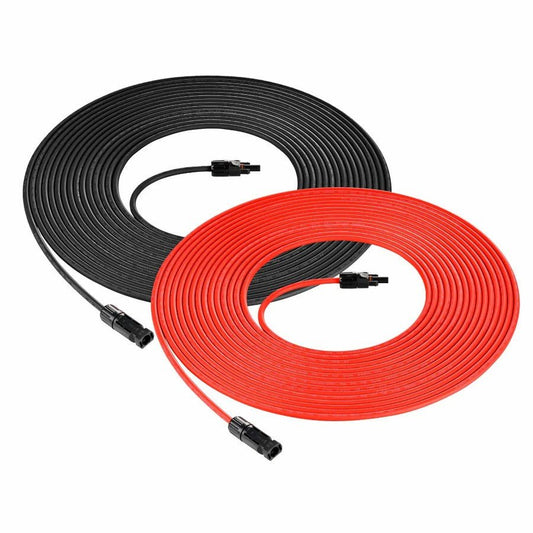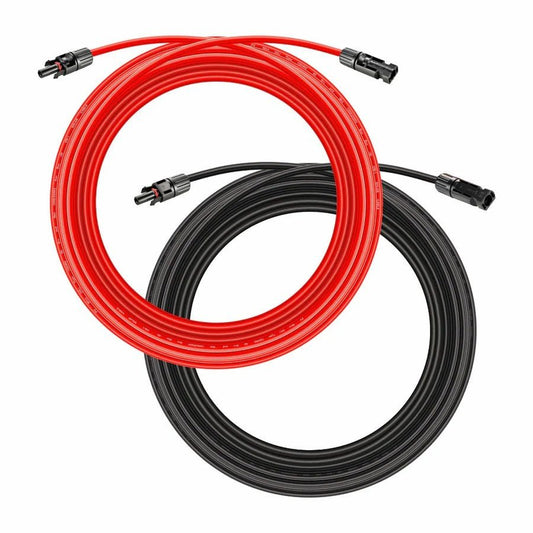Your Cart
Lithium Deep Cycle Batteries

Unlocking the Power of Lithium Deep Cycle Batteries: A Comprehensive Guide to Long-lasting Energy Solutions
In this comprehensive guide, readers will uncover the untapped potential of lithium deep cycle batteries as a long-lasting energy solution. From understanding the science behind their power to practical tips for maximizing their efficiency, this article empowers readers with the knowledge they need to harness the full benefits of this advanced technology. Whether you're a novice looking to explore sustainable energy options or a seasoned enthusiast seeking to optimize your energy storage system, this guide is your go-to resource for unlocking the true power of lithium deep cycle batteries.
Lithium iron phosphate Lifepo4 battery are rechargeable batteries known for their high energy density, long cycle life, and high power output. These batteries are widely used in various applications, including electric vehicles, solar energy storage systems, and portable electronic devices. LiFePO4 batteries offer several advantages over other types of rechargeable batteries, such as lithium-ion and lead-acid batteries. They are more stable and less prone to thermal runaway, making them a safer option for many applications. Additionally, they have a longer lifespan and can withstand a greater number of charge-discharge cycles. This makes them a cost-effective and reliable choice for a wide range of energy storage needs.
Power outages can be a major inconvenience for both households and businesses. They can disrupt daily activities, cause financial losses, and pose safety risks. It is important to be prepared for power outages by having emergency supplies such as flashlights, batteries, and non-perishable food items on hand. It is also advisable to have a backup power source, such as a generator, especially for businesses that rely heavily on electricity to operate. Additionally, staying informed about power outage alerts and updates from local authorities can help minimize the impact of outages. By taking these proactive measures, individuals and businesses can better cope with the challenges posed by power outages.

Understanding Lithium Deep Cycle Batteries
Lithium deep cycle batteries have been gaining popularity as a long-lasting energy solution, especially in the context of solar power and home backup systems. Understanding the science behind these advanced batteries and their key benefits is essential for anyone looking to harness their full potential.
Lithium battery are a type of rechargeable battery that are widely used in electronic devices such as smartphones, laptops, and electric vehicles. They are popular due to their high energy density, long lifespan, and relatively low weight. However, lithium battery also come with certain risks, such as the potential for fire and explosion if not handled and stored properly. It is important to follow safety guidelines when using and disposing of lithium battery to minimize these risks. Additionally, proper recycling of lithium batteries is crucial to prevent environmental contamination from their materials.
The Science Behind Lithium Deep Cycle Batteries
Lithium deep cycle batteries, also known as LiFePO4 batteries, are a type of rechargeable battery that uses lithium iron phosphate as the cathode material. This chemistry allows for a high energy density, excellent thermal stability, and a long cycle life. Unlike traditional lead-acid batteries, lithium deep cycle batteries can be discharged to a much lower level without causing damage, making them ideal for deep cycle applications.
Key Benefits of Lithium Deep Cycle Batteries
One of the main advantages of lithium deep cycle batteries is their high energy density, which means they can store more energy in a smaller and lighter package compared to lead-acid batteries. They also have a longer lifespan, with a typical cycle life of 2000 to 10000 cycles, depending on the depth of discharge. Additionally, they charge more efficiently and have a lower self-discharge rate, making them an excellent choice for energy storage.
When it comes to home backup power, reliability is key. A home backup power system ensures that your home remains powered during outages or emergencies, providing you with peace of mind and convenience. From portable generators to whole-house standby systems, there are various options available to suit your specific needs. When selecting a backup power solution for your home, it's essential to consider factors such as fuel type, capacity, and ease of use. By investing in a reliable backup power system, you can minimize disruptions and maintain a comfortable living environment, no matter the circumstances.
How They Differ from Lead-Acid Batteries
Unlike lead-acid batteries, lithium deep cycle batteries do not suffer from the memory effect, allowing them to be partially charged and discharged without affecting their overall lifespan. They also have a higher charge acceptance, which means they can be charged at a faster rate. Additionally, lithium batteries are more environmentally friendly as they do not contain toxic heavy metals like lead.
Choosing the Right Lithium Deep Cycle Battery
When it comes to selecting a lithium deep cycle battery, there are several factors to consider to ensure you choose the right one for your specific needs.
Lithium batteries are a type of rechargeable battery that is commonly used in electronic devices such as smartphones, laptops, and electric vehicles. They are popular due to their high energy density, long lifespan, and lightweight design. However, there are some safety concerns associated with lithium batteries, as they have the potential to overheat and catch fire if not handled properly. It is important to follow proper charging and usage guidelines to minimize the risk of accidents. Additionally, proper disposal of lithium batteries is crucial to prevent environmental damage. Therefore, it is essential to be aware of the benefits and risks associated with lithium batteries and to use them responsibly.
The battery lithium iron phosphate, also known as LFP battery, is a type of rechargeable battery that is widely used in electric vehicles and energy storage systems. It is known for its high energy density, long cycle life, and thermal stability, making it a popular choice for applications that require a reliable and durable power source. Additionally, the LFP battery is considered to be safer and more environmentally friendly compared to other lithium-ion battery chemistries, due to its lower risk of thermal runaway and reduced use of rare earth materials. As a result, the lithium iron phosphate battery has gained significant attention in the automotive and renewable energy industries as a promising solution for sustainable and efficient energy storage.
Factors to Consider When Selecting a Battery
Capacity, voltage, cycle life, and safety features are important factors to consider when choosing a lithium deep cycle battery. Understanding your energy storage requirements and the specific demands of your application will help you determine the most suitable battery for your needs.
When it comes to reliable and long-lasting power storage for off-grid or renewable energy systems, deep cycle lithium batteries are an excellent choice. Unlike traditional lead-acid batteries, deep cycle lithium batteries offer a significantly longer lifespan, higher energy density, and faster charging capabilities. This makes them ideal for applications such as marine, RV, solar power, and backup power systems. With their lightweight and compact design, deep cycle lithium batteries also offer greater flexibility for installation in various spaces. Additionally, they require minimal maintenance and are equipped with advanced safety features, providing peace of mind for users. Overall, deep cycle lithium batteries are a superior option for anyone seeking efficient and durable energy storage solutions.
When it comes to choosing a battery for your needs, batteries deep cycle battery are often the best option. Unlike regular car batteries, batteries deep cycle battery are designed to provide a steady amount of power over a longer period of time. This makes them ideal for use in applications such as renewable energy systems, electric vehicles, and marine equipment. Additionally, batteries deep cycle battery are built to withstand frequent discharging and recharging, making them a reliable and durable choice for various off-grid and backup power needs. Whether you're looking for a dependable power source for your RV, boat, or solar energy system, batteries deep cycle battery offer the versatility and performance you need.

Popular Brands and Models in the Market
There are several reputable brands in the market offering a range of lithium deep cycle batteries, each with its own unique features and specifications. Some popular brands include Battle Born Batteries, RELiON, and Renogy, among others.
Comparing Capacity, Voltage, and Cycle Life
When comparing different lithium deep cycle batteries, it's essential to look at their capacity (measured in ampere-hours), voltage, and cycle life. These factors will determine the overall performance and longevity of the battery in your specific application.
Maximizing Efficiency and Longevity
To ensure you get the most out of your lithium deep cycle battery, it's important to follow best practices for charging, discharging, maintenance, and storage.
Best Practices for Charging and Discharging
Properly charging and discharging your lithium deep cycle battery according to the manufacturer's recommendations will help maximize its efficiency and lifespan. Avoiding overcharging or deep discharging is crucial for maintaining the health of the battery.
Tips for Proper Maintenance and Storage
Regularly inspecting and cleaning the battery terminals, as well as storing the battery in a cool and dry environment, will help prolong its lifespan and ensure optimal performance.
Integrating Lithium Deep Cycle Batteries with Solar Systems
For those using lithium deep cycle batteries in conjunction with solar energy systems, it's important to ensure proper integration and sizing to maximize the benefits of solar power and energy storage.
Applications and Future Developments
Lithium deep cycle batteries have a wide range of applications, from residential and commercial energy storage to electric vehicles and golf carts. As battery technology continues to advance, we can expect to see further innovations and developments in the realm of sustainable energy solutions.
Common Uses for Lithium Deep Cycle Batteries
Lithium deep cycle batteries are commonly used in off-grid solar systems, RVs, marine applications, and as backup power for homes and businesses. Their high energy density and long cycle life make them well-suited for these applications.
Innovations and Advancements in Battery Technology
The ongoing research and development in battery technology are leading to advancements in lithium deep cycle batteries, including improvements in energy density, cycle life, and safety features.
The Role of Lithium Deep Cycle Batteries in Sustainable Energy Solutions
As the demand for sustainable energy solutions continues to grow, lithium deep cycle batteries will play a crucial role in enabling the widespread adoption of solar power, electric vehicles, and other clean energy technologies.
In conclusion, understanding the science, benefits, and practical considerations of lithium deep cycle batteries is essential for anyone looking to leverage their long-lasting energy solutions. By choosing the right battery, following best practices for efficiency and longevity, and staying informed about the latest developments, individuals and businesses can unlock the true power of lithium deep cycle batteries for a sustainable energy future.
No comments





















0 comments